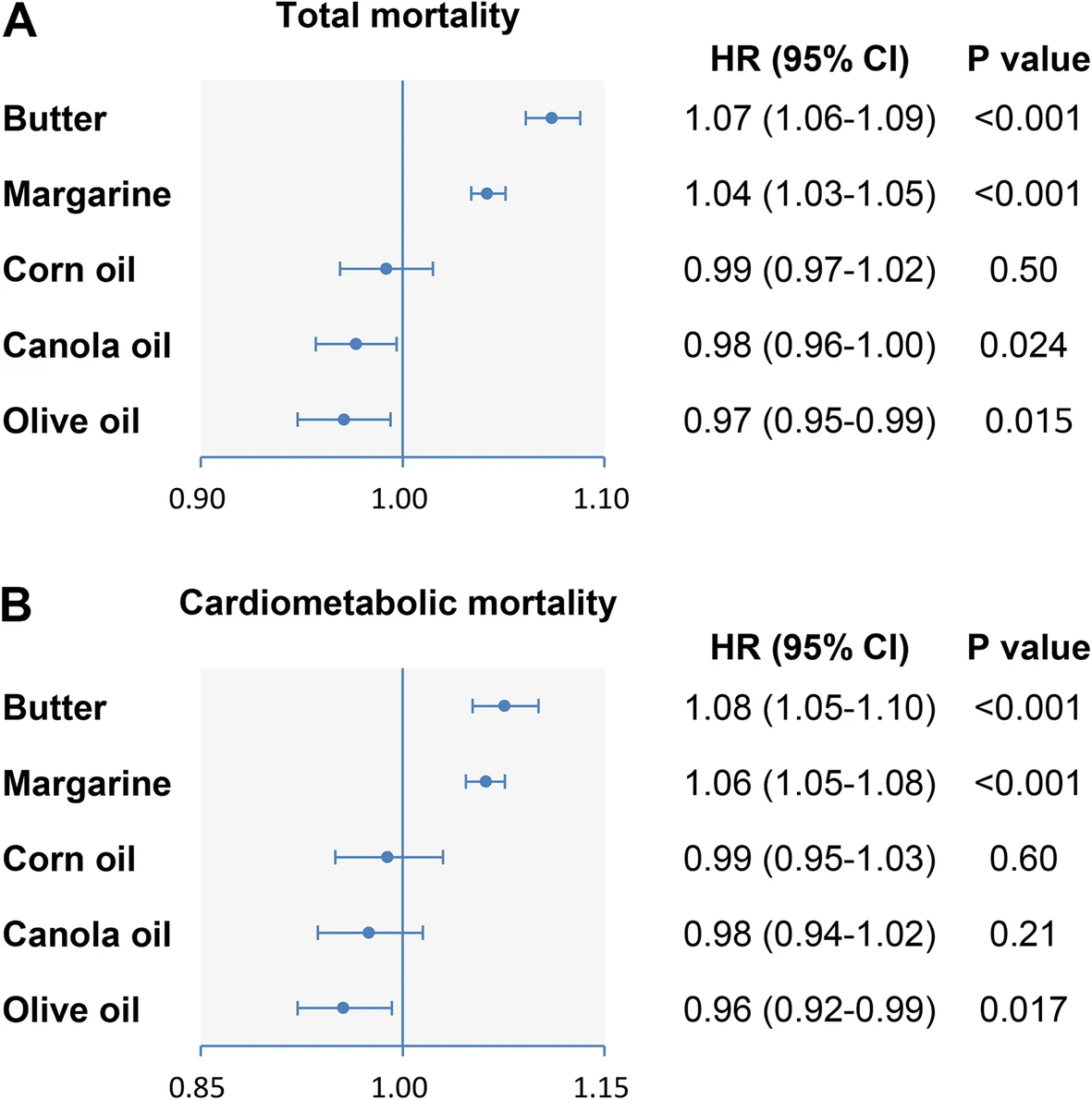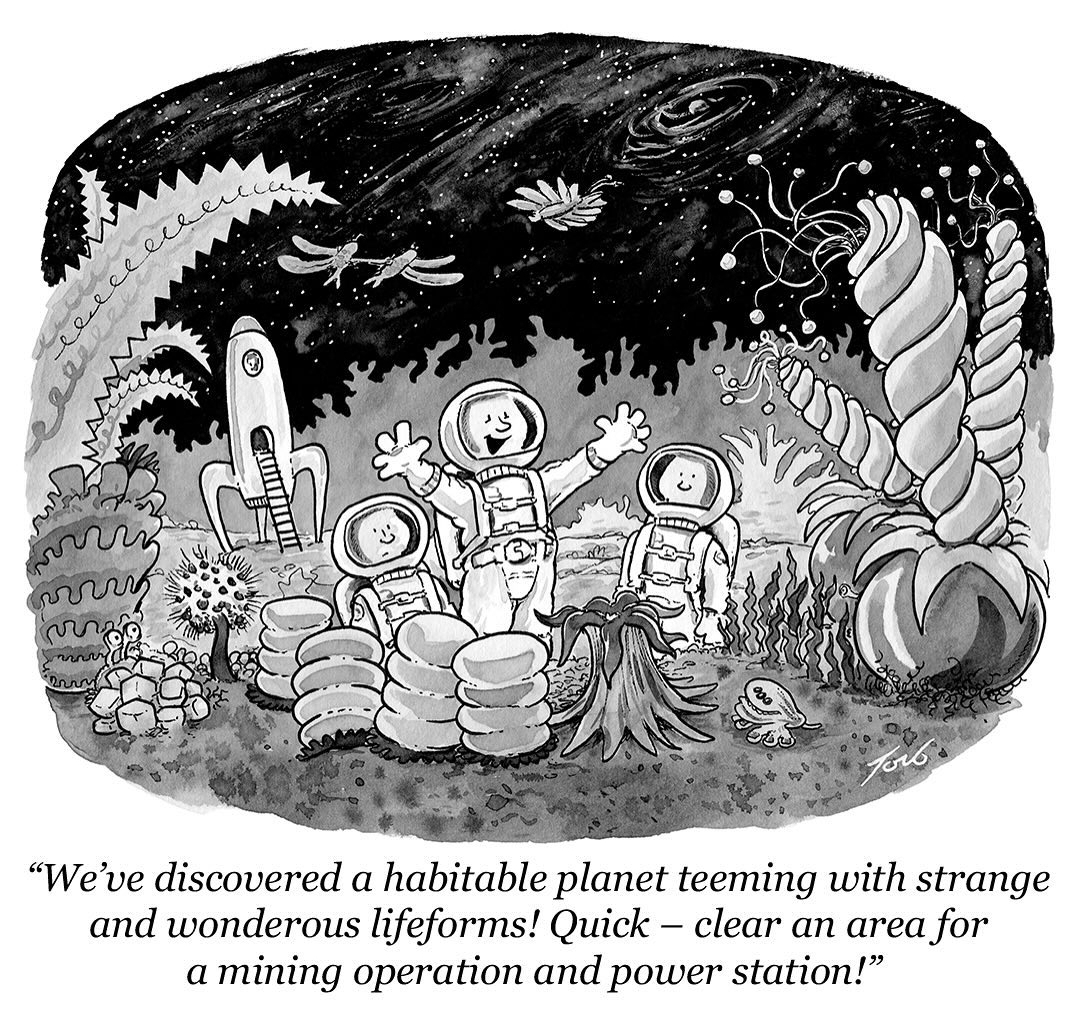I don't disagree, I'm just pointing out that hydrogenated fat ("margarine") is a problem.

https://bmcmedicine.biomedcentral.com/articles/10.1186/s12916-021-01961-2/figures/1
Multivariable-adjusted hazard ratios of total and cardiometabolic mortality for 1-tablespoon/day increment in cooking oil/fat consumption. Forest plots show the multivariable HRs of total (a) and cardiometabolic (b) mortality associated with 1-tablespoon/day increment in butter, margarine, corn oil, canola oil, and olive oil consumption. HRs were adjusted for age, sex, BMI, race, education, marital status, household income, smoking, alcohol, vigorous physical activity, usual activity at work, perceived health condition, history of heart disease, stroke, diabetes, and cancer at baseline, Healthy Eating Index-2015, total energy intake, and consumption of remaining oils where appropriate (butter, margarine, lard, corn oil, canola oil, olive oil, and other vegetable oils). Horizontal lines represent 95% CIs


🤔 I wonder what the water is used for.